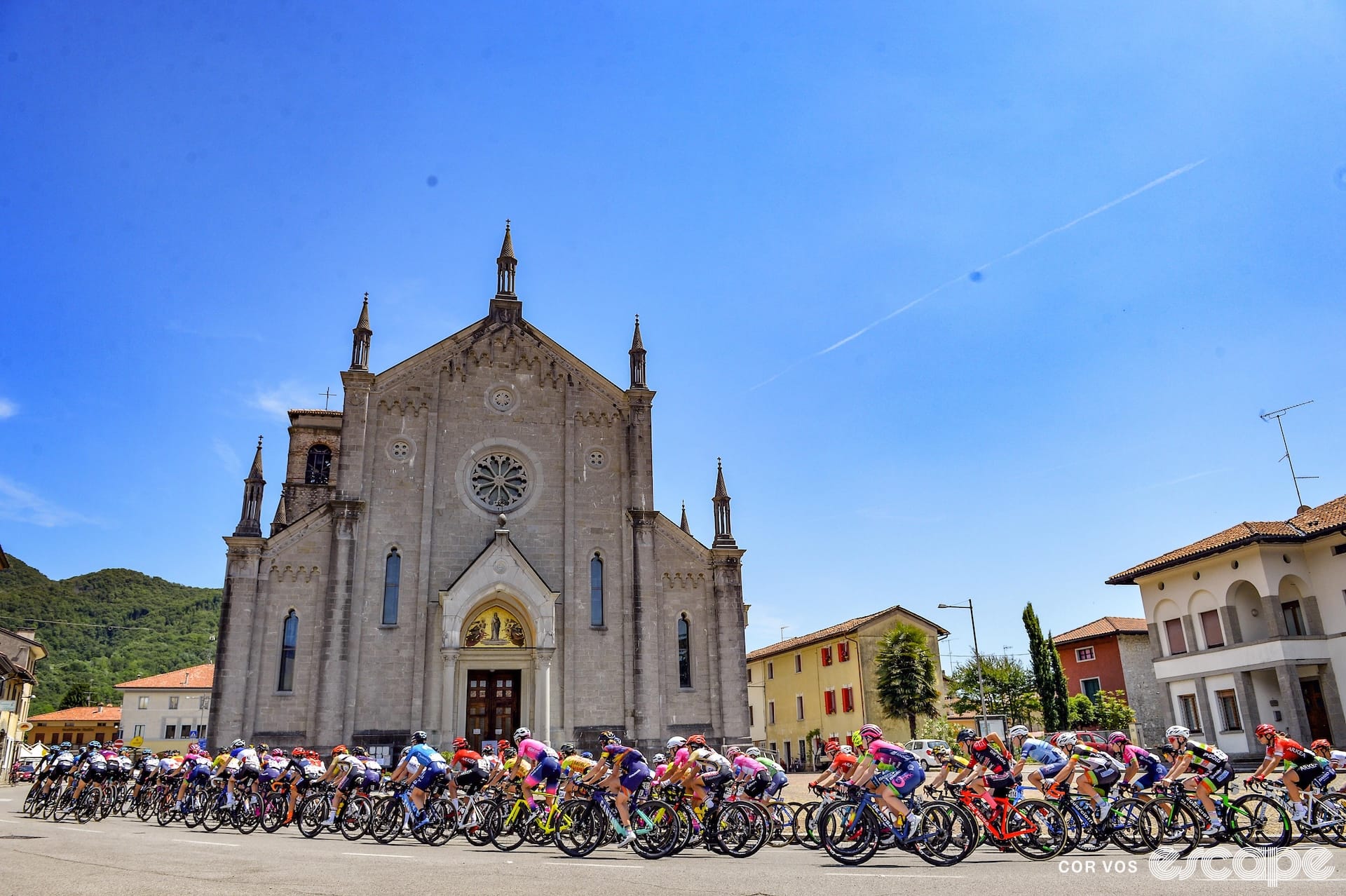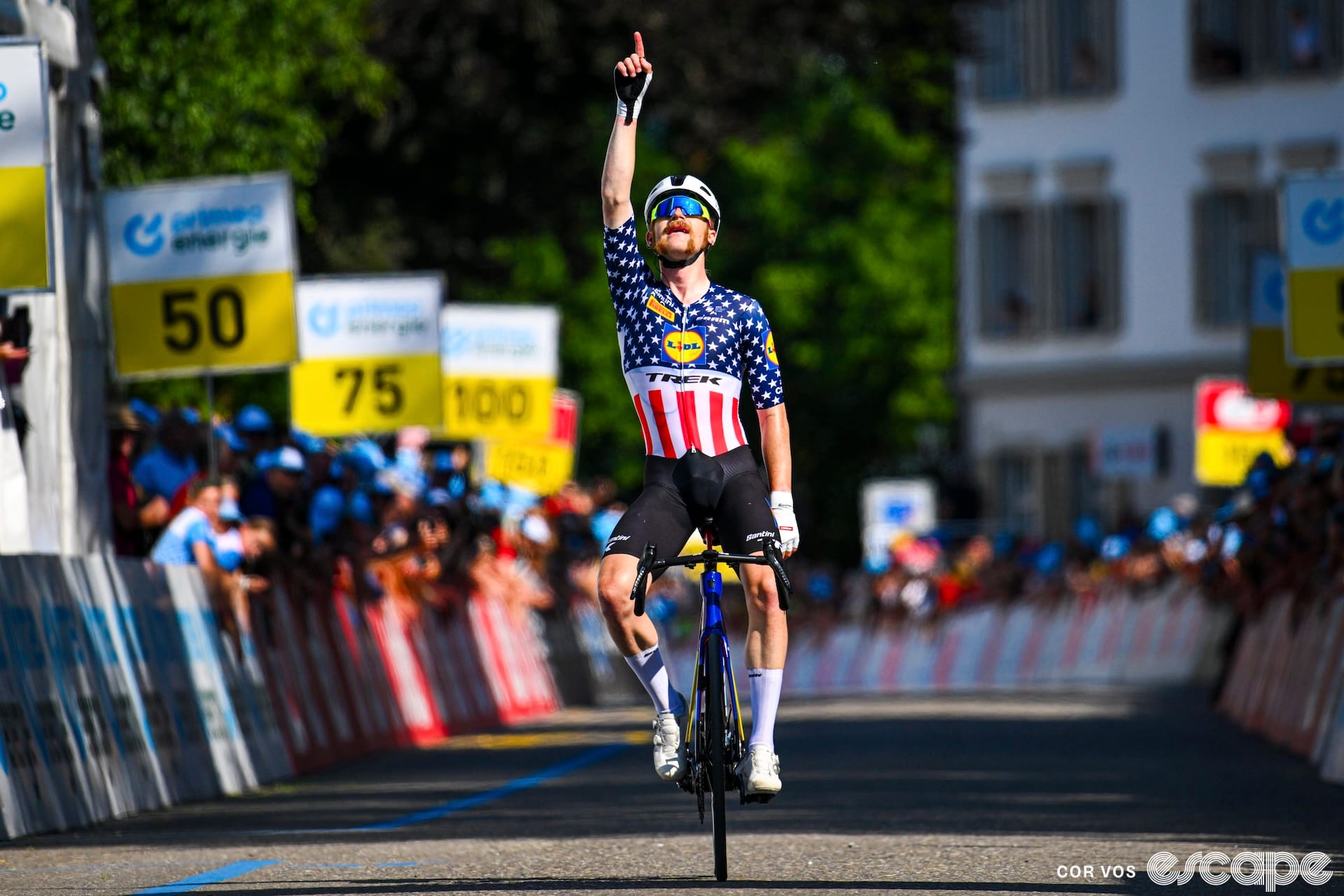"The deal is done," Bora-Hansgrohe boss Ralph Denk announced in a press conference on Thursday. The German-registered cycling team and Austrian-based energy drink giant Red Bull officially linked up in January, and the squad will get a rebrand midway through the season.
The team will race as Red Bull-Bora-Hansgrohe from the 2024 Tour de France onward. The new name will also come with new kit that is yet to be revealed. Denk preferred to keep that part a mystery for now, declining to provide any hints on how that kit might look. (Austria’s biggest newspaper Krone Zeitung says it looks like this.)
Thursday's news comes some four months after Red Bull made its initial bid to invest in the team, a move that was followed by a period of review by Austrian anti-trust authorities. That period passed without incident, allowing the deal to move forward, and the energy drink company and bike racing team then worked to hammer out the details of their arrangement.
"A lot of paperwork in the last weeks is behind us. From now on, we can really go forward," Denk said.
"I'm super happy to have this joint venture."
Red Bull's involvement will mean added investment, though it remains to be seen exactly how that investment will be used to bolster a roster that already includes Grand Tour and Monument winner Primož Roglič.
"With the arrival of Red Bull, we have big, big goals for sure," Denk said. "We will win, I mentioned this already in the past, but you need also in every department the potential to win the Tour de France – but not just the Tour de France is the big goal. [Being] brand number one, the most attractive brand in cycling, is for the whole project a big goal."
The organization will also invest in a new under-23 squad as Denk and Co. hope to build for the long term by bringing up-and-comers aboard early in their careers and developing them for the future.
"This is a main focus for the next years," Denk said, "to create the next icon rider from scratch."
Not Red Bull's first rodeo
The marketing department at Red Bull clearly thinks sports and canned drinks go together like Red Bull and the clear alcoholic liquid of your choice. Red Bull's involvement in sports began in the late 1990s and has since expanded to include teams in Formula One, soccer, hockey, and extreme sports, among others.
In Formula One, Red Bull made its most prominent mark by purchasing the Jaguar Racing team in 2004, rebranding it as Red Bull Racing. The move paid off spectacularly. The team has won six constructors' championships (that's the award for best team) and seven drivers' championships since. The company further expanded its F1 footprint by establishing Scuderia AlphaTauri, a sister team that serves both as a racing competitor and a developmental platform for younger drivers.
Soccer is another arena where Red Bull has invested heavily. The company owns Red Bull Salzburg in Austria, RB Leipzig in Germany, New York Red Bulls in the USA, and Red Bull Bragantino in Brazil. Each of these teams has been rebranded with the Red Bull logo and operates under a "unified sporting philosophy," according to various press releases, focusing on developing young talent and playing an aggressive, forward-thinking style of soccer.
The acquisition strategy extends to other sports as well. In ice hockey, Red Bull owns EC Red Bull Salzburg and EHC Red Bull München, both of which compete in their respective national leagues and have enjoyed domestic success. The company's involvement in extreme sports includes sponsoring athletes and events in disciplines from mountain biking to cliff diving, including a number of road racers like Tom Pidock and, quite recently, Zoe Bäckstedt.
This focus on development is present across most of Red Bull's sports teams, so it isn't surprising that Denk announced the investment in a U23 team alongside the new partnership.
Red Bull's approach to sports team ownership is distinctive, primarily serving as a marketing platform while also profoundly influencing the operational and cultural aspects of the sports entities it acquires. This approach has sparked controversy, especially among traditionalists in the sports community who may view such commercial influences with skepticism.
Did we do a good job with this story?




